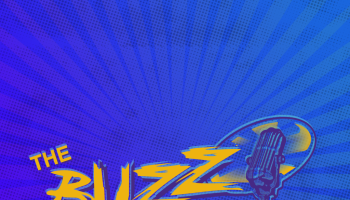via:nytimes
A class-action suit to be argued next week in New York’s highest court has become a test of a national strategy by civil liberties groups to challenge what they say are failed public defender programs in m
Because an estimated 80 percent of felony defendants in large states are too poor to hire their own lawyers, and because the case is being watched around the nation, the case has the potential to alter the shape of the criminal justice system.
Filed by the New York Civil Liberties Union, the lawsuit is a broad challenge to a patchwork system that has been described by decades of studies and commissions as dysfunctional, underfinanced and “in crisis,” with often poorly trained and poorly supervised lawyers handling huge caseloads. It says indigent clients have been failed by their appointed lawyers all around the state.
“The eyes of the nation will be on New York as it decides this crucial issue,” a brief filed by the National Association of Criminal Defense Lawyers argues.
As the system works now, defendants who are unhappy with their appointed lawyers can generally make those claims only after they are convicted. The court then reviews each appeal case by case. But the civil liberties lawyers argue that a broad review is necessary because the arrangement has not addressed systemic failings that unconstitutionally leave tens of thousands of defendants without meaningful representation in every part of the state.
The state has fought hard against the suit, which was first filed in 2007, arguing that if New York’s highest court, the Court of Appeals, allows it to proceed — and a court later uses the case to order the state to upgrade the public defender system — it would be a judicial invasion of the authority of the Legislature and the governor. Such improvements, some lawyers say, could cost hundreds of millions of dollars.
In one filing, the state argues that by appointing lawyers it fulfills its constitutional obligations. “It cannot be seriously contended that plaintiffs have been denied the right to counsel,” the state says. The state’s defender system includes Legal Aid Societies, private lawyers who are appointed by the courts, and local public defender offices.
Next Tuesday, the Court of Appeals is to consider whether the suit can proceed. A half-dozen friend-of-the-court briefs portray the scheduled argument as a critical step in defining the meaning of a landmark decision of the United States Supreme Court in 1963. The decision, Gideon v. Wainwright, declared that the Constitution required states to provide lawyers for indigent defendants.
In recent years, there have been cases similar to the New York one in states like Connecticut, Indiana, Minnesota, Montana and Washington, with settlements, lower court decisions and inconsistent rulings. The Michigan Supreme Court is to hear a challenge to its public defender program next month.
The New York class-action suit was filed in the name of a Rochester woman, Kimberly Hurell-Harring, and 19 other people who were facing criminal charges in five counties: Onondaga, Ontario, Schuyler, Suffolk and Washington. The question before the Court of Appeals is whether the class action presents an issue that the courts can consider.
Ms. Hurell-Harring claimed that an upstate public defender did little for her but pressure her to plead guilty after a felony arrest for trying to sneak marijuana to her husband, who was in prison. Others among the named plaintiffs said that lawyers provided for them were overwhelmed with cases and failed to investigate or make basic legal arguments.
“I was just a number, a docket number,” said Edward Kaminski, a retired auto mechanic who faced larceny charges in 2007 and dealt with a series of lawyers from the Legal Aid Society in Suffolk County on Long Island.
Louis E. Mazzola, a senior lawyer at the Suffolk Legal Aid Society, said lawyers there disagreed with the way their work was described in the suit. But he said budget pressures “drive everything we do.”
“From a client’s point of view,” Mr. Mazzola added, “it’s not a great system.”
The civil liberties case has placed New York officials in the awkward position of defending a $400 million locally financed system that a 2006 commission said did not provide effective representation to “a large portion of those entitled to it.”
Law enforcement officials are divided over the case, with arguments on each side filed by groups of former and current New York prosecutors. Some prosecutors say the case overstates the problems with public defender programs. In some areas, the system is “working well and protecting every right,” said Kathleen B. Hogan, the president of the State District Attorneys Association.
Ms. Hogan, the Warren County district attorney, said that allowing a sweeping challenge would bring chaos by encouraging thousands of defendants to claim their lawyers were inadequate and their convictions should be overturned.
But Corey Stoughton of the Civil Liberties Union, the lead lawyer in the case, said defense programs were chronically starved of money for decades because officials in every branch of government never made the adequate representation of indigents a political priority.
Because of the poor quality of representation, innocent people are convicted and defendants routinely face pressure to plead guilty, Ms. Stoughton said.
“The case-by-case method fails,” she said. “The political method fails. For decades, the State of New York has been on notice that the public defense system is in crisis and fails to meet basic constitutional responsibilities.”
She said the case was a priority of the state’s Civil Liberties Union that could go on for years.
Gov. David A. Paterson has recognized there are problems in the current system and has proposed legislation that would create an Office of Indigent Defense to evaluate the system. The bill would also provide a modest $7 million increase in state subsidies.
Last year, the Legislature passed a law intended to limit defenders’ caseloads in New York City, where on average Legal Aid lawyers each handle more than 700 cases a year. But it is not clear that adequate financing will be provided.
The society’s attorney in chief, Steven Banks, said the suit could be important in the city in providing a meaningful way to force the government to meet what he said were the requirements of the Gideon v. Wainwright decision.
Mr. Banks said the Hurell-Harring case raised a clear question for the courts — “whether Gideon and the right to counsel has meaning or not.”
Around the country, some lawyers have said they detect a concerted strategy by civil liberties lawyers to challenge public defender systems. If so, that may be due largely to the efforts of Robin L. Dahlberg, a senior staff attorney at the American Civil Liberties Union in New York. Ms. Dahlberg has been working on the issue since the mid-1990s, developing what she described as a model for such cases.
“There is a recognition among national groups,” she said in an interview, “that where all other efforts to reform a system have failed, litigation may be the only alternative.”
- 1
- 2
any states.














